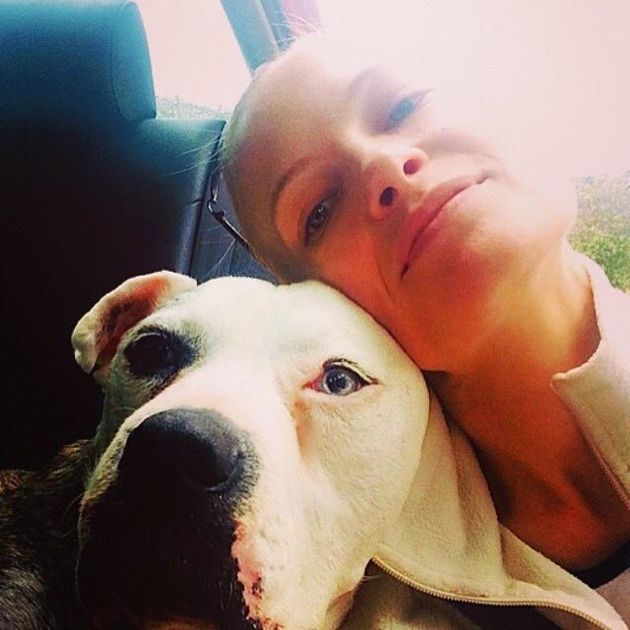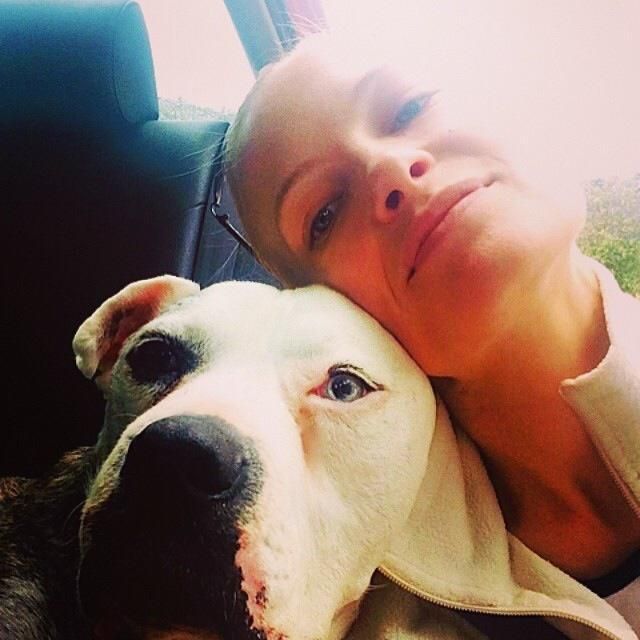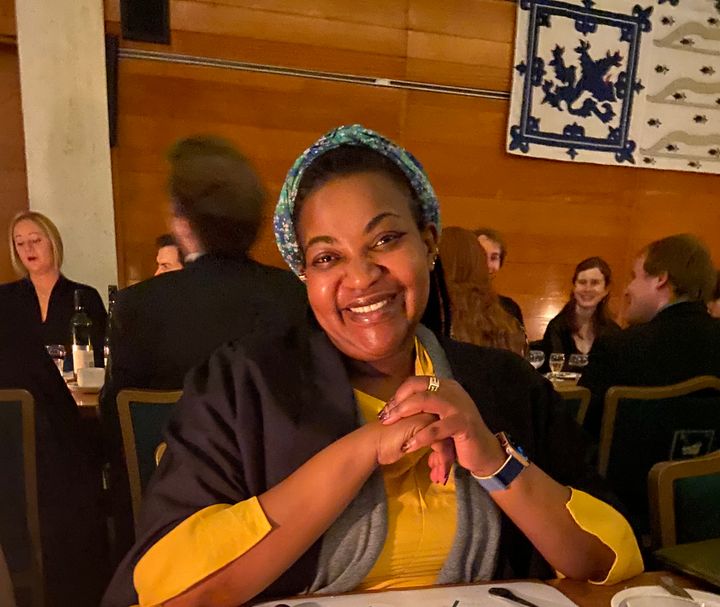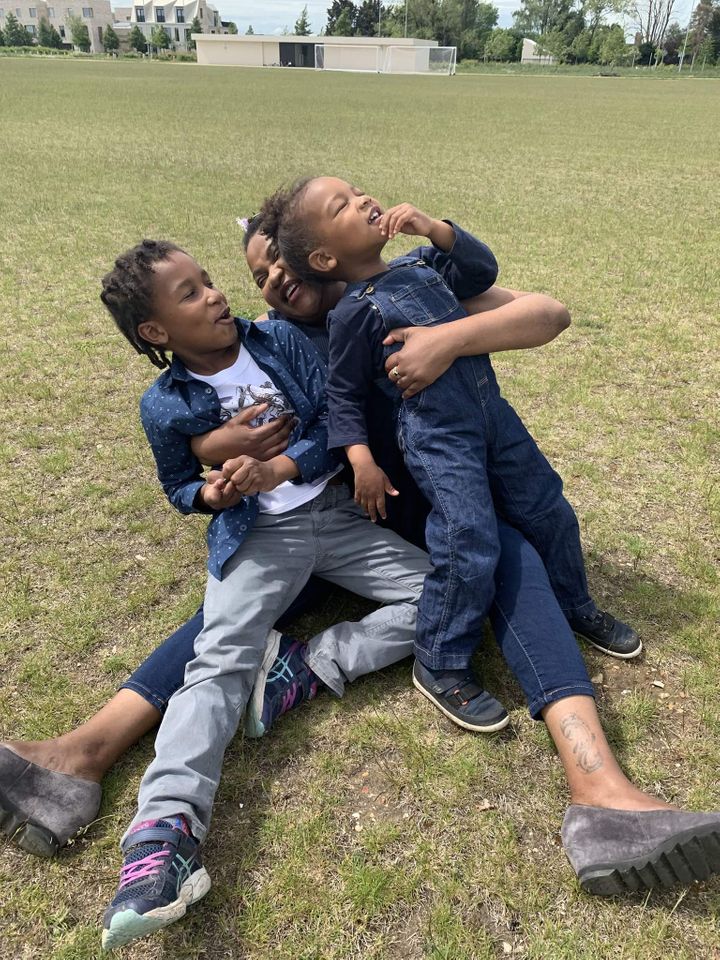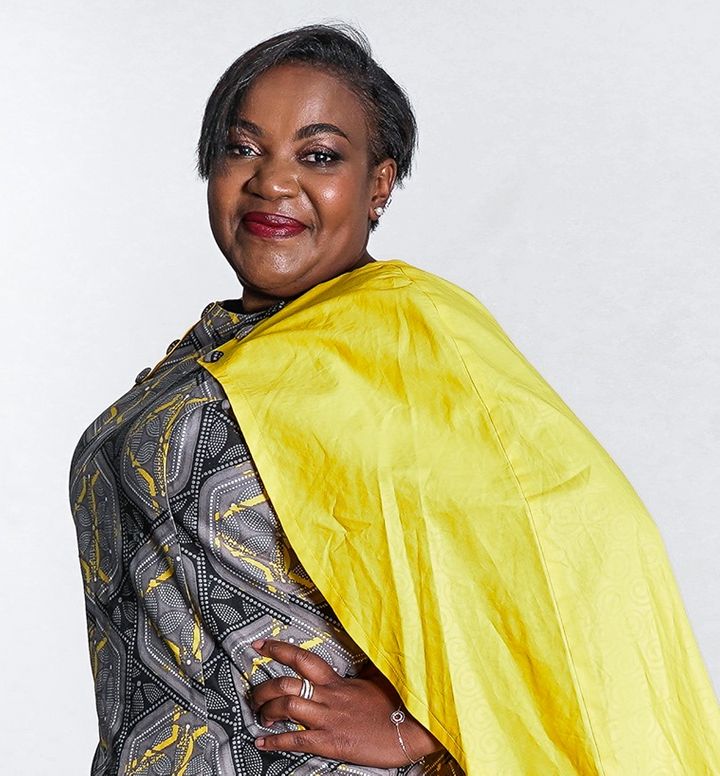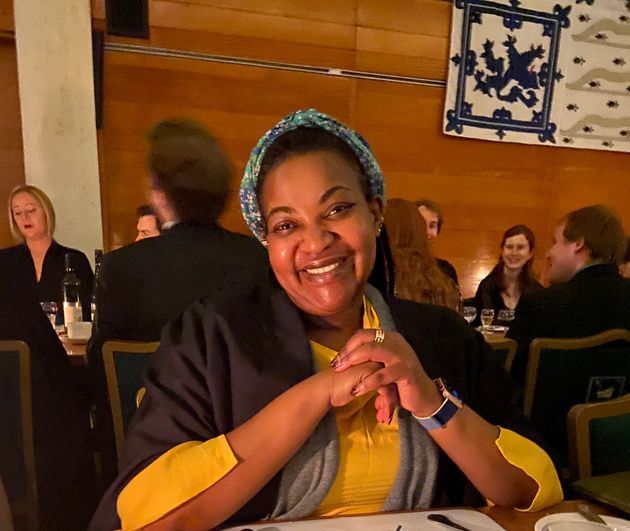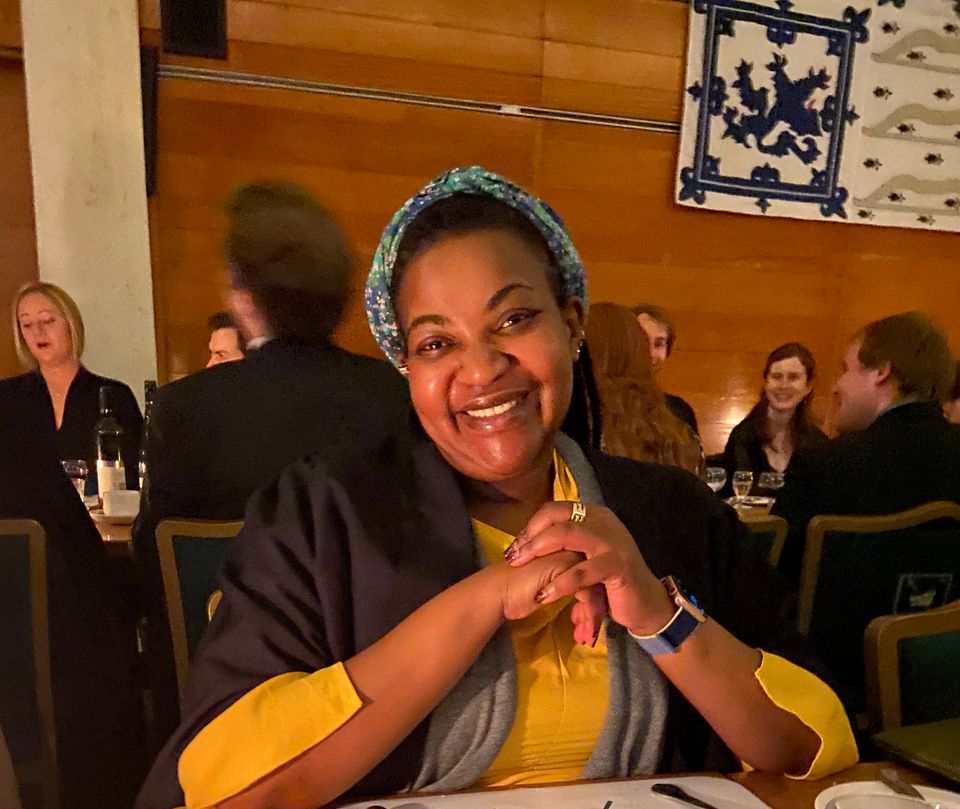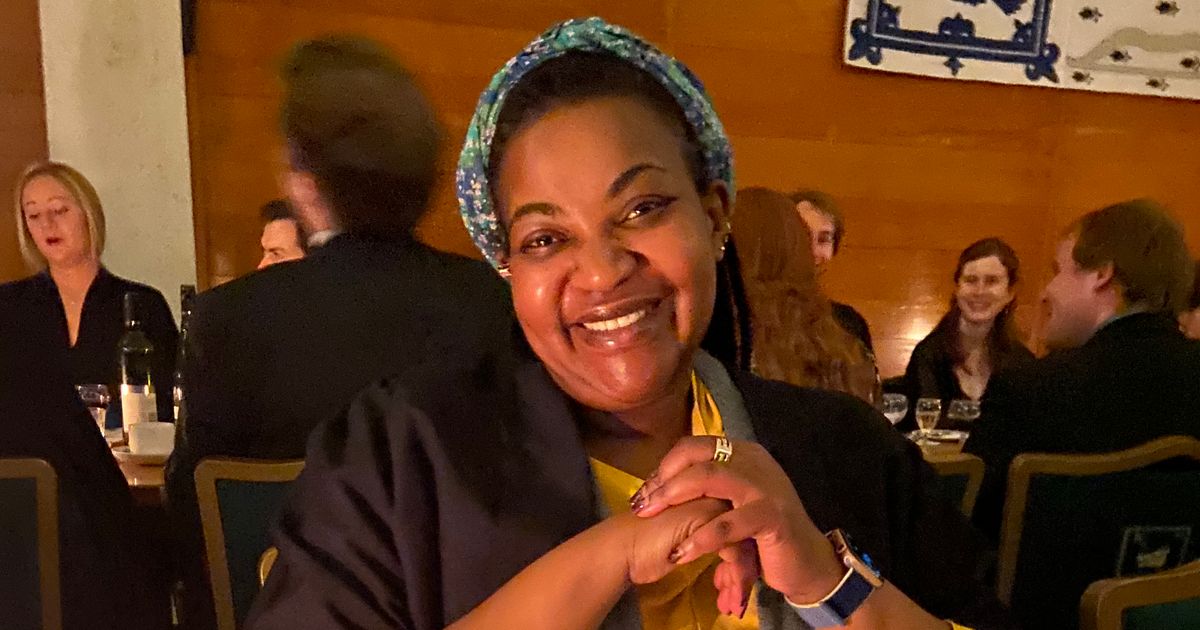When I met Zoe, an 85-pound, deaf American bulldog with different coloured eyes, I knew she was my companion. Seeing her pumpkin-shaped head in my rearview mirror as I drove with her away from the Los Angeles rescue gave me a sense of, “There you are!” as though I’d found someone I’d been searching for for years without realising it.
When my then boyfriend — let’s call him Jax — met Zoe, he had the opposite reaction. “We can’t keep her,” he said, backing away from us toward our living room wall.
Advertisement
Wait, what? His words didn’t compute. Where I saw my sweet, furry friend, Jax saw a monster.
Through difficult conversations, I learned that Jax’s time in a community gripped by generational violence and dog fights led him to associate certain breeds with trauma. It didn’t matter that Zoe stayed calm around him.
Jax said he would try to make it work with Zoe, but couldn’t seem to stay in the house for more than one night with her in it. Within a week, it was clear that Zoe would never be welcome.
Jax owned the home, and I’d only recently moved in, so all I felt I could do was make sure Zoe had a safe place where she was welcome. I sobbed, driving her back to the rescue, and hyperventilated after. “If she ends up with no place to go, call me,” I’d pleaded with the rescue manager. “I would come back for her. I’d figure it out.”
Advertisement
Maybe there was a loving home waiting for her around the corner, I told myself. That thought did little for my heartache, but it kept me from falling apart completely.
Jax and I attempted to carry on, but our experience with Zoe seemed to shed light on our differences that now felt like incompatibilities. He needed things to stay spotless and orderly. I needed my own space to be creative, without stressing over any mess I might make. He enjoyed discotheques and nightlife. I prefer sunrise hikes and turning in early. When he told me he wasn’t yet ready to share my attention, even with a dog, I appreciated his honesty. Meanwhile, I wasn’t willing to sacrifice my independence. Or, I realised, not care for a dog.
“I think we rushed into living together,” I told Jax, which started a heated argument. The conflict strengthened my qualms. So instead of slowing things down, we broke up.
Advertisement
After weeks of searching, I found a guest house in my price range that allowed dogs, then contacted the rescue and learned that Zoe was still available. The news gave me a full body exhale.
“She’s protective and doesn’t always like men,” Zoe’s adoption materials read. Works for me, I thought, signing the agreement.
When Zoe met Mike, my kind, funny and brilliant-without-being-intimidating neighbour, she rushed toward him. I panicked. How protective was she? Rather than attack, Zoe placed her front paws on Mike’s shoulders, like a canine hug.
Advertisement
Within two years, Mike and I got married on the steps we met on. Our wedding party consisted of Zoe, Mike’s parrot Wombley, and our dear friends’ senior beagle Eunice Petunia. When Eunice rolled up in her pink stroller with our rings strapped to her back, I lost it.
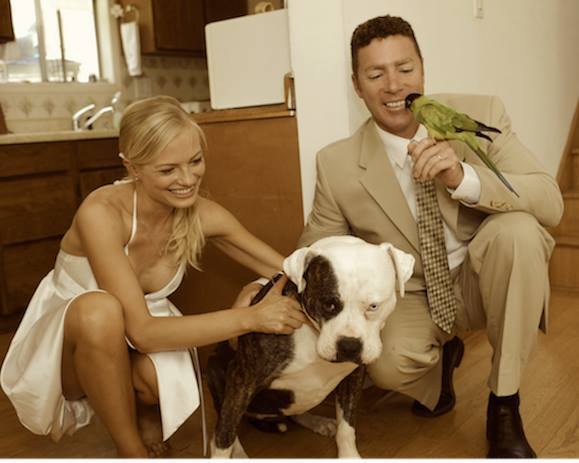
Stefanie Keenan
I’m not alone in having chosen a pet over a partner. When I posted about my experience on social media, over 40 people responded with similar experiences.
Advertisement
Ashley, a school principal in Oklahoma, realized her two large, mixed-breed dogs may be a dealbreaker with her partner when an argument erupted over whether or not the dogs would be allowed on the bed once they all lived together.
“They were here before him,” she told me. “I wasn’t kicking them out of their bed!” Beyond that, he didn’t understand her responsibility to them. “He’d want me to impulsively take an overnight trip, without a sitter or boarding lined up, and get annoyed when I’d say I couldn’t,” she said.
She called it quits when her partner took a job in a rural town. “We would have lived over two hours away from our primary care veterinarian, and 1 1/2 hours away from any 24/7 veterinary emergency rooms,” Ashley said. “That was a hard no for me.”
Advertisement
Jeanne Cross, owner and licensed therapist at EMDR Center of Denver, has helped people navigate breakups related to disagreements about animals. “A pet can contribute to a breakup when disagreements arise about pet care, responsibilities or lifestyle compatibility,” she said. “One partner may want a pet-free home due to allergies or a demanding schedule, while the other insists on keeping the pet.” Conflicts can also arise when one person is “significantly more invested in the pet,” she added.
A pet may even give people the courage to leave a harmful relationship. T., an office employee in California who preferred to remain anonymous, was in a relationship that seemed healthy and happy at first. Over time, frequent arguments gave way to abuse by T.’s boyfriend.
On a smoldering, triple digit day, T. returned home to find a skinny, tick-covered dog that had recently had puppies, lying down under her boyfriend’s truck. He told her he’d known about the dog but ignored her, not even offering water.
Advertisement
“During my search for her owner and trying to get her to lead me to her puppies, my boyfriend said, ‘Just leave her alone,’” T said. “So eventually I had to call Animal Control to pick her up. When they were walking her to the truck, she turned around and looked at me, and my heart just broke.”
Besotted with the dog, T. decided to visit her at the shelter daily until she was spayed and available for adoption. Then, T. took her home. “I had never experienced so much happiness and joy,” she said of that day. “She very quickly became my heart-and-soul dog.”
T.’s boyfriend, who at one point threw garbage at the dog, soon became her ex. “I felt guilty and heartbroken for my dog being brought into that situation,” she reflected. “I hadn’t cared about my own well-being, but I cared about hers… She saved me from a horribly abusive relationship, and I will forever be grateful for her because of it. We saved each other.”
Advertisement
Relationship experts agree that choosing a pet over a partner can be the right decision. But there is a “wrong” motivation, according to Melissa Legere, a licensed marriage and family therapist and clinical director of California Behavioral Health: choosing the pet out of spite.
“If a couple breaks up and one of them insists on keeping the pet…just to hurt the other person, that’s not fair to anyone, especially the pet,” she said. “Doing this turns the pet into a pawn, which isn’t good because pets are supposed to be loved and looked after, not used as a way to get back at someone.”
Approached with genuine care, however, the decision has major benefits: “When you choose the pet, you put its well-being first and can make sure it’s in a stable, loving environment where its needs will come first,” said Legere. “Sometimes, this can be the most responsible and compassionate choice.”
Advertisement
Choosing a pet can also lead to strengthened self-compassion. Ashley, who parted with her ex two years ago, remains happily single. She’ll approach any new relationship differently. “One thing [choosing my dogs over a partner] taught me is that my ideal partner will value and prioritise the same things I do,” she said. “Someone that loves me shouldn’t be asking me to kick the canine loves of my life out of my bed after years of them sleeping with me, or to move somewhere that could leave them without [life-saving] veterinary care.”
The day of our wedding, Zoe started to limp. When a specialist revealed the cost of the surgery she needed, we looked at each other in agreement. Our honeymoon plans turned into a “Zoe-moon,” as we rehabilitated her in our living room for two months. All considering, I wouldn’t have had it any other way.

